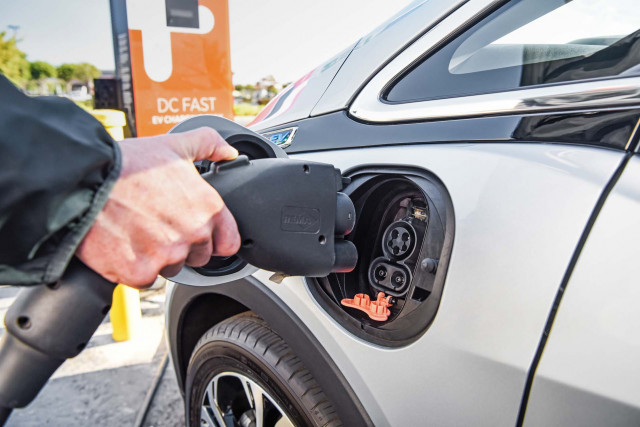
The term “hail Mary” might be appropriate for what General Motors, led by chief executive officer Mary Barra, is attempting at this stage of the federal government’s dialog on fuel efficiency and electric vehicles.
GM is launching an effort to propose a 50-state solution for electric vehicles, including a national version of California’s Zero Emissions Vehicle mandate. It’s doing so in the final day of an extended period for public comment on what the Trump Administration is calling the Safer Affordable Fuel-Efficient (SAFE) Vehicles Rule for Model Years 2021-2026 Passenger Cars and Light Trucks, a rule that would lock fuel economy requirements for that period to their 2020 levels.
As much as it may seem like a last-ditch effort in this process, it’s calling the proposal the start of a discussion.
“We believe in a policy approach that better promotes U.S. innovation and starts a much-needed national discussion on electric vehicle development and deployment in this country,” said the automaker, in a statement released Friday. “A National Zero Emissions Program will drive the scale and infrastructure investments needed to allow the U.S. to lead the way to a zero emissions future.”
In what sounds somewhat like an extension of some of the ideas behind California’s ZEV program, the automaker is advocating for the establishment of annual requirements that electric vehicles and plug-ins make up 7 percent of the market in 2021 and increase 2 percent each year, to eventual targets of 15 percent by 2025 and 25 percent by 2030.
The program would be ended when a target is met of ZEV-qualifying vehicles making up one fourth of the market.
Such a scheme would involve the establishment of a Zero Emissions Task Force and use a credit system modeled after California, with the banking and trading of credits permitted and credits themselves based on EV range. Additional considerations would be made for autonomous vehicles and those used in ride-sharing programs.
GM notes that the requirements would be linked to a path toward much lower battery costs, of $70 per kwh, as well as “adequate infrastructure development.”
As of yet, there’s no infrastructure component to federal or California rules. But to place the battery numbers into context, GM has said that the cells in the Chevrolet Bolt EV cost just $145 per kwh, although the total cost of the battery has been summed at about $205 per kwh. That calculates to a cell cost of about $8,700 and a pack cost of more than $12,000. Last year it listed the (warranty-covered) replacement cost of the pack at $15,734.
GM’s move marks a break from the allied policy approach that’s been taken since last year by two industry groups, the Alliance of Automobile Manufacturers and Global Automakers. GM is a member of the former, and while it’s been speaking out about global electrification plans it’s been notably silent until now about a comprehensive national plan.
In written testimony late last year, the Alliance of Automobile Manufacturers, of which GM is a core member, argued mostly in favor of transitionary technologies like hybrid systems, and the idea of renewed CAFE credits for “off-cycle” technologies like solar panels for hybrids, engine start-stop capability, and active aerodynamics.